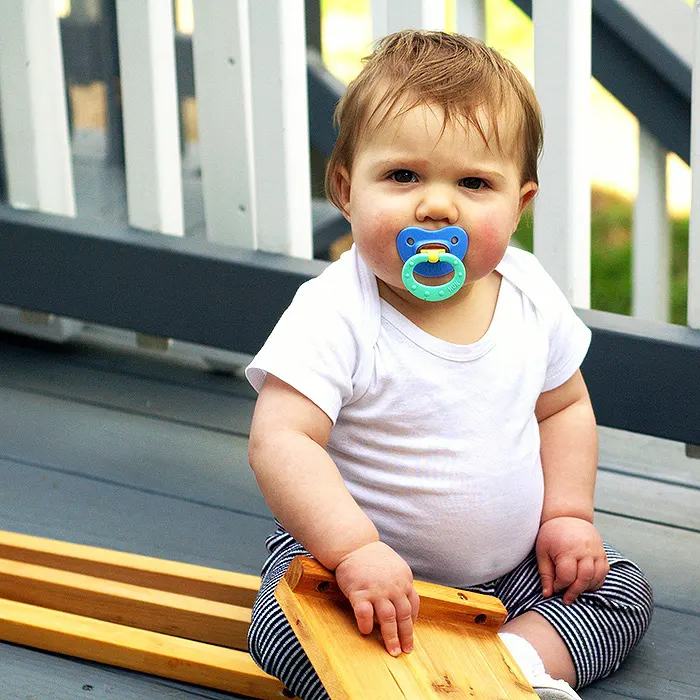AS CHILDREN GROW OLDER, some parents begin to worry about their child’s thumb sucking or pacifier habits. This is a normal behavior for an infant, but the older a child gets, the more harm it can do to their oral and dental development.
The Pros And Cons Of Pacifiers
Pacifiers have many benefits for infants, including reducing a child’s chance of Sudden Infant Death Syndrome (SIDS), or simply helping them drift off to sleep at night! However, if pacifier use or thumb sucking is prolonged, it can negatively impact your child’s growing teeth and mouth.
Some side effects of prolonged pacifier use and thumbsucking include:
- protrusive upper front teeth (front teeth stick out)
- tipped back lower front teeth
- open bite (front teeth don’t come together)
- and crossbite (teeth overlap the opposite of how they should.
Pacifiers are probably easier to discontinue than thumb or finger sucking as the pacifier can be taken from the child gradually over a period of time. Fingers and thumbs are easier to track. I’ve spent many nights trying to find the pacifier so my child could get some sleep, which meant we could too. It’s probably a little easier to ensure that a pacifier is clean than a finger, but I’ve seen many parents clean their childs pacifier by sucking on it themselves. Not sure how that works.
There’s More Than One Way To Help Your Child Quit
When is the right time to help your child kick the habit of using a pacifier or sucking their thumb? To allow the body to correct any oral health issues that may have been caused by persistent sucking, the Academy of General Dentistry suggests that an infant quit using a pacifier before the age of 2. If your child enjoys sucking their thumb or using a pacifier, it is best to help them stop no later than age 4.
Tips for helping your child quit thumb sucking:
- Praise your child for not sucking her thumb, instead of getting angry or irritated when he or she does.
- Consider rewards when your child abstains for a certain period of time.
- Use a thumb guard
- Have an oral appliance fabricated that is attached to the child’s teeth (this is reserved for older children (ages 6 and up) where the habits persists despite other efforts)
Tips to help your baby quit using a pacifier:
- Dip the pacifier in vinegar.
- Pierce or cut the top of the pacifier to decrease the amount of sucking possible.
More often than not children stop theses habits on their own before age 4. Many of the dental problems that might be noted, especially an open bite, will self-correct once the thumb-sucking or pacifier use stops. My experience has been that forcing the issue can sometimes prolong the time it takes to break the habit. In my 15+ years practicing as a dentist, I have only had one or two children where these habits became problematic. But I’ve had lots of concerned parents with questions about
Let’s Visit About Your Questions Or Concerns
If you have any questions or concerns about your child’s thumb sucking or pacifier habits please contact us! We would love to discuss what’s best for your child. Do you have any tips of your own for quitting pacifier use? Please share below!
Thanks for being a valued part of our practice family!
The content on this blog is not intended to be a substitute for professional medical advice, diagnosis, or treatment. Always seek the advice of qualified health providers with questions you may have regarding medical conditions.








